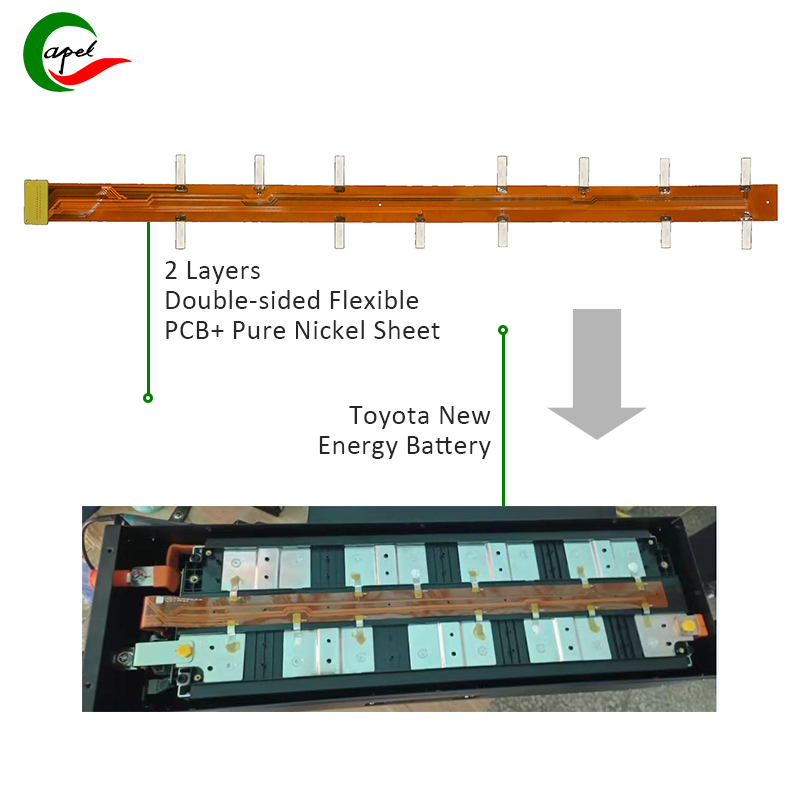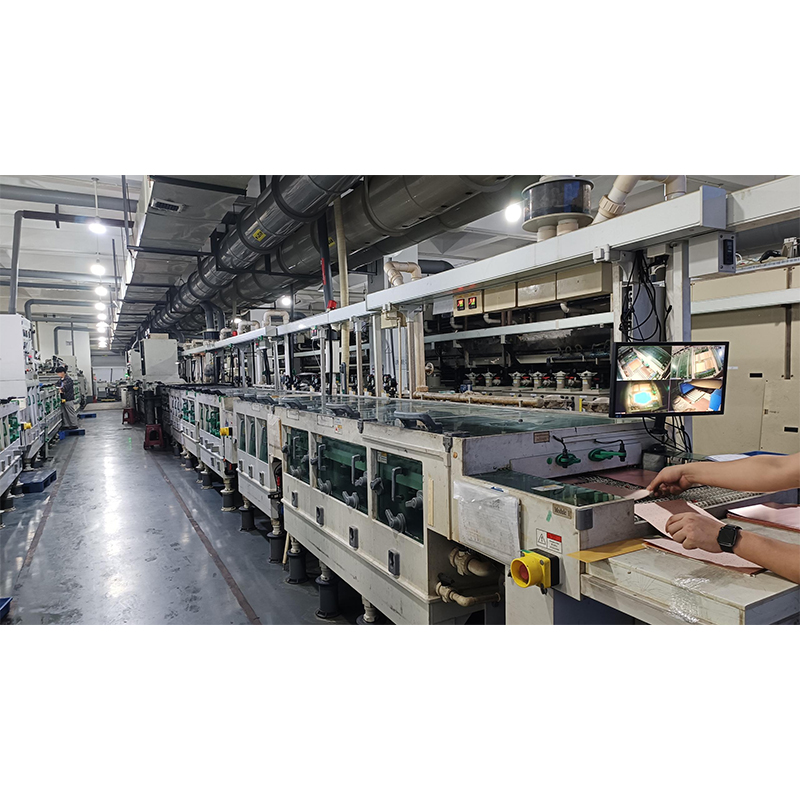Discover how Capel’s advanced FPC-Flex PCB manufacturing technology meets the challenge of producing 2-layer Flex PCBs for new energy vehicle battery protection circuit boards. Dive into the technical prowess and industry impact of this successful case study.
Introduce
New energy vehicles such as electric vehicles and hybrid vehicles are at the forefront of environmentally friendly transportation. With the advancement of technology, new energy vehicles have increasing demands for high-performance, reliable, and efficient electronic components. Flexible PCBs (flexible printed circuits) play a vital role in these vehicles, especially in applications such as battery protection circuit boards. In this article, we will take an in-depth look at how Capel’s proven FPC process technology and innovative solutions solve the industry-specific challenges faced by customers in automotive new energy vehicle 2-layer flexible PCB manufacturing.
Customer challenges
The customer, a leading manufacturer in the new energy vehicle industry, faced severe challenges when producing 2-layer flexible PCBs for battery protection circuit boards. Specific requirements for flexible PCB include:
Materials: Flexible PCBs need to be constructed using polyimide (PI) as the substrate and copper traces and adhesive as the bonding layer.
Line width and line spacing: Line width and line spacing need to be accurate to 0.2mm/0.25mm to ensure the integrity and functionality of the circuit.
Plate thickness: Plate thickness is specified as 0.25mm +/- 0.03mm, requiring strict compliance with dimensional tolerances.
Minimum Hole: The PCB requires a minimum hole size of 0.1 mm to accommodate the necessary components.
Surface Treatment: Electroless Nickel Immersion Gold (ENIG) surface treatment is mandated for its excellent conductivity and corrosion resistance.
Tolerances: Customers require tight tolerances of ±0.1mm to achieve precise and accurate board dimensions.
Capel’s solutions and technical capabilities
Capel’s experienced team of FPC engineers carefully analyzes customer needs and designs innovative solutions to meet and exceed project requirements. Here’s how Capel’s technical prowess and innovation demonstrate its success in meeting customer challenges:
Advanced Materials Selection and Procurement: Capel’s in-depth knowledge of the properties and performance characteristics of polyimide, copper and adhesive materials enables meticulous selection and procurement. High-quality materials are selected to ensure the reliability, flexibility and thermal stability of flexible PCBs, which are crucial for automotive new energy applications.
Precision Manufacturing Processes: Capel’s advanced manufacturing facilities and expertise in FPC prototyping and production processes enable precise implementation of specified line widths, line spacings, board thicknesses and minimum hole sizes. State-of-the-art equipment and strict quality control measures are used to achieve the required dimensional accuracy and consistency for each flexible PCB.
Superior Surface Treatment: The application of Electroless Nickel Immersion Gold (ENIG) surface treatment is performed with the highest precision and in compliance with industry standards. Capel’s surface treatment process provides the conductivity, solderability and durability required to meet the stringent requirements of modern automotive electronics.
Tolerance Management and Quality Assurance: Capel’s commitment to maintaining tight tolerances of ±0.1mm is demonstrated through meticulous quality assurance protocols. Every step of the manufacturing process is rigorously reviewed to ensure that the finished 2-layer flexible PCB has excellent dimensional accuracy and reliability, meeting the stringent standards of the new energy vehicle industry.
Case Study Analysis: Customer Success and Industry Impact
Capel’s successful collaboration with customers has produced high-quality 2-layer flexible PCBs that exceed industry expectations. The robust performance and precision of the manufactured flexible PCBs have made a huge contribution to customers’ new energy vehicle battery protection circuit boards, improving the safety and efficiency of vehicle electrical systems.
The technical strength and innovation embodied in Capel’s mature FPC process technology were critical in driving this project to a positive outcome. Capel’s ability to consistently deliver custom flexible PCB solutions within tight tolerances and specific material requirements demonstrates Capel’s strength in this area. The impact of this collaboration extends beyond direct customer success and highlights the role of advanced FPC manufacturing in advancing the development of the new energy vehicle industry.
Capel’s dedication to continuous improvement and innovation in FPC prototyping and manufacturing has proven to be helpful in meeting the ever-changing needs of the automotive new energy sector. This case study demonstrates Capel’s commitment to providing reliable, high-performance and customized solutions to raise the bar for flexible PCB production in the rapidly growing new energy vehicle market.
New Energy Vehicle PCB Manufacturing Process
In conclusion
In the dynamic landscape of new automotive energy technologies, the role of FPC-Flex PCB prototyping and manufacturing cannot be underestimated. Capel’s success case studies demonstrate the technical prowess and innovation that underpins its FPC process technology. By solving the specific challenge of producing 2-layer flexible PCBs for new energy vehicle battery protection circuit boards, Capel not only demonstrates its capabilities but also contributes to the advancement of automotive electronics.
As the industry continues to evolve, the seamless collaboration between Capel and its customers demonstrates the potential of cutting-edge FPC solutions to drive innovation, efficiency and safety in new energy vehicles. Case study analysis highlights the critical importance of technical expertise, precision manufacturing and an unwavering commitment to quality in the ever-changing automotive electronics landscape. With its customer-centric philosophy and pursuit of excellence, Capel continues to set new standards for FPC-Flex PCB manufacturing in the new energy vehicle industry.
This article provides valuable insights into the intrinsic connection between FPC-Flex PCB technology and the new energy future of automotive, positioning Capel as a leader in providing innovative solutions to power the next generation of environmentally friendly transportation.
Post time: Feb-27-2024
Back








